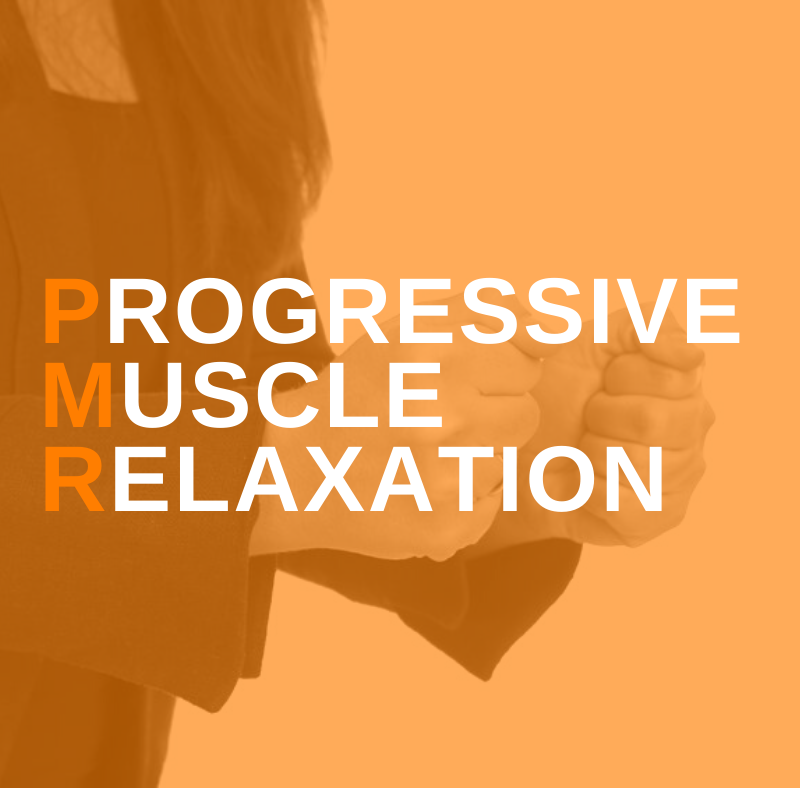
Progressive Muscle Relaxation (PMR) is a form of active relaxation, perfect for athletes and personal training clients alike who desire a concrete path into mindfulness and/or purposeful movement. It’s also great for athletes who struggle (like I did at first) with recovery, or simply put–sitting still.
To get what PMR is, let’s break down each word in the sequence:
Progressive:
Happening or developing gradually or in stages; proceeding step-by-step.
Muscle:
A body tissue consisting of long cells that contract when stimulated and produce motion.
Relaxation:
The state of being free from tension and anxiety; the action of making a rule or restriction less strict.
What is Progressive Muscle Relaxation?
Progressive muscle relaxation is a deep relaxation technique based upon the simple practice of tensing, or strongly contracting, one muscle group at a time followed by a relaxation phase that involves the release of the physical tensing and contraction. This process thereby relaxes the muscle more so than would be possible by simply “trying” to relax.
This technique was implemented in the 1930’s by Edmund Jacobson and is based on the premise (which he believed) that mental calmness is a natural result of physical relaxation.
The act of creating opposing actions in succession–tensing and relaxing–creates a degree of awareness in the person performing the actions. Most of our personal training clients are uncertain of what it feels like to actively release tension in a muscle because they may be unaware of the low-level tension or activity constantly present in the muscle tissue. Generating a strong contraction and then letting it go provides a stark enough contrast in sensations to help one to fully “let go” of the muscle activity allowing more complete relaxation to take place.
Progressive muscle relaxation can be learned by nearly anyone and requires only 10 minutes to 20 minutes per day to practice (possibly less if you focus on only one muscle group/area of the body or combine muscle groups). Here’s a quick video providing a quick overview of how to perform Progressive Muscle Relaxation:
Benefits of Progressive Muscle Relaxation
It has proven effectiveness with:
- Managing stress and anxiety
- Relieving insomnia
- Reducing symptoms of chronic pain
- Increasing rate of recovery
- Enhancing sports performance
PMR has been used successfully in combination with standard treatments for symptom relief in the following conditions:
- Headaches
- Cancer pain
- High blood pressure
- Digestive disturbances
As an athlete, I perform PMR pretty regularly, sometimes during the day, and many times before I go to sleep. Doing PMR during the day helps me stay relaxed and aware of where I’m holding tension in my body. It helps to maintain proper spinal alignment, posture, and assists in implementing corrective exercise.
Doing PMR before I go to bed also helps me fall asleep fast. I teach it to my clients and they consistently share how it has had positive effects. Use it as another opportunity to teach your clients a new skillset that may help reduce stress, improve mindfulness, and reach fitness goals more efficiently.
http://psychology.iresearchnet.com/sports-psychology/psychological-skills/relaxation-in-sport/






